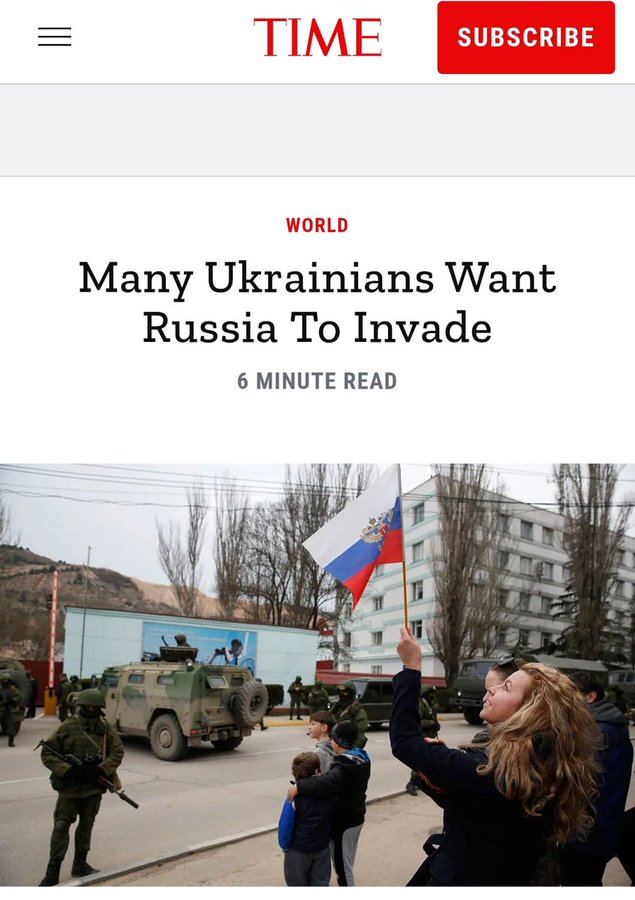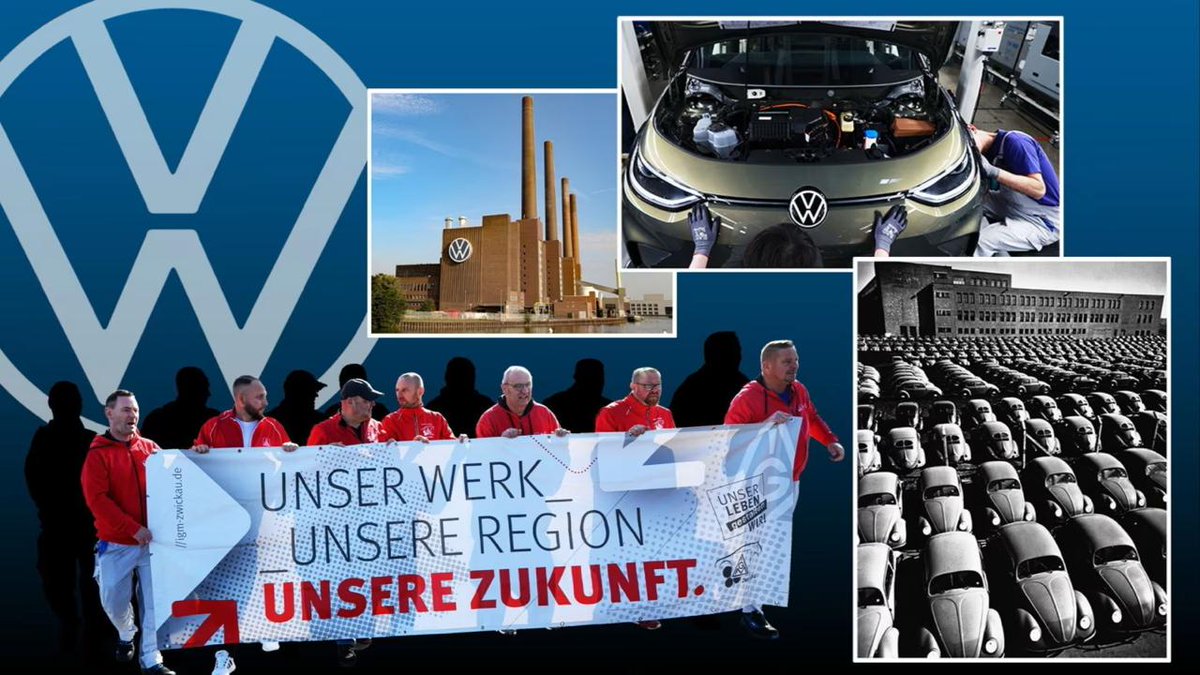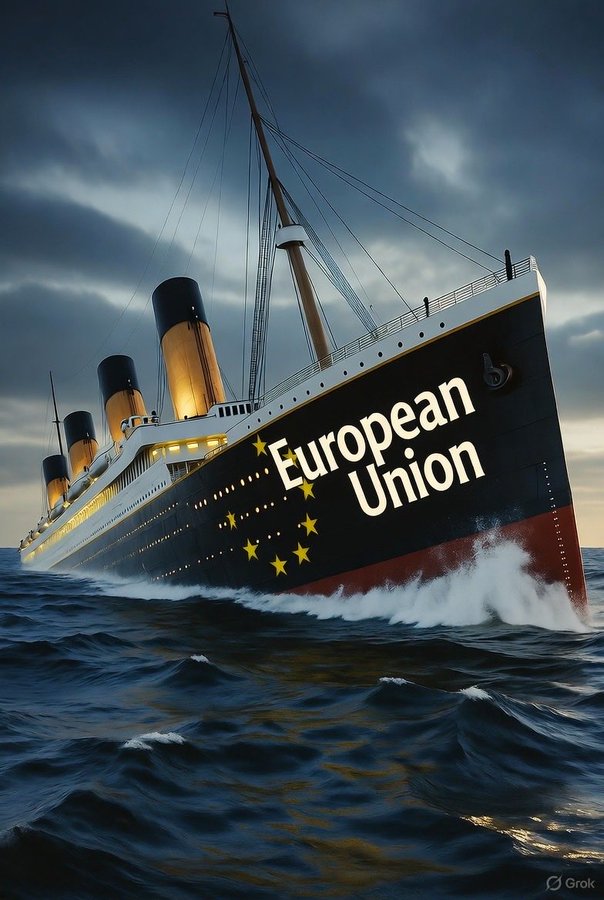
Posted on 02/24/2024 5:59:01 AM PST by SpeedyInTexas

Check out this blacklist that was published by the disgusting Ukie Molfar group.
https://www.molfar.institute/en/our-influence/projects/lists/foreign-propagandists/
(When you click on the link, scroll down the names until you get to Charlie Kirk’s name. Click on it and check out their “PROOFS” link. It’s absolutely disgusting, and this is what zeepers support & defend)
This is a USAID-NED funded Ukie group who had even listed Vice President Vance, Charlie Kirk, Elon Musk, and many others as a “foreign propagandists” aligned with the Russian government, and demanded their “removal from public positions, the introduction of sanctions, and investigations into personal involvement in crimes.”
They condemned Vice President Vance for having stated that he “remains opposed to continuing to finance this war.”
Worst of all, in the eyes of these Ukie Dipsh*ts, was his stance on Ukraine’s NATO aspirations:
“He declared that Ukraine should not join NATO, because it would supposedly mean ‘inviting the American nation to go to war.”
They even smeared President Trump.
In 2022, a Molfar warmonger was quoted by CNN accusing Trump of “absolutely pro-Kremlin” behavior because “Trump said that Crimea is Russian, because people speak Russian.”
At least two other Ukie groups which attacked and smeared Trump, Vance, Kirk, Musk....... were directly subsidized by U.S. taxpayers: VoxUkraine & Vox Populi.
Another one of these corrupt groups is CCD, established under Pinocchio Zelensky in 2021.
The group presents itself as a government-backed effort to prevent the spread of “destructive disinformation” and the “manipulation of public opinion.” LOL!!
These are the same bastard who took U.S. taxpayers money (NED & USAID), while they were
hard at work smearing Tulsi Gabbard as being “on the Kremlin’s payroll.” In a Telegram post about Gabbard published in April 2022.
CCD stated that “the enemy [Russia] continues to spread disinformation using recruited American politicians.
And this is only the very tip of this enormous corrupt Ukie BS iceberg.
You are wasting your time and electrons, puffing on Putin’s bong of poisonous propaganda, that has put you in a pickle.
When OSINT in Ukraine was just beginning to take shape, the Molfar intelligence agency was collecting knowledge in open-source intelligence and using it to support Ukraine’s informational resistance against Russia.
Over time, realizing that intelligence and OSINT had grown into an entire culture, analysts from the Molfar community established an organization that educates and informs about intelligence and digital security — Molfar Intelligence Institute (NGO “OSINT”).
Nazi Breeding Program
The Nazi breeding program, known as Lebensborn, was a secret initiative launched by SS leader Heinrich Himmler in 1935 to increase the population of racially "pure" Aryans in Nazi Germany The program aimed to create a future elite by encouraging the birth of children deemed racially valuable, based on Nazi eugenics and racial ideology It was designed to boost Germany’s declining birthrate and promote the growth of a strong, "racially elite" population
Initially, the program focused on providing financial assistance, adoption services, and private maternity homes for unmarried German women deemed "racially valuable" and "hereditarily healthy" These women, often selected from groups like the Band of German Maidens (the female wing of the Hitler Youth), were required to prove their racial purity going back three generations The Lebensborn homes offered prenatal care, discreet childbirth, and postnatal recovery in private country estates, prioritizing anonymity to shield mothers from social stigma
The program expanded significantly during World War II, becoming involved in the systematic kidnapping of thousands of foreign children from occupied territories, particularly in Eastern and Southeastern Europe Children with physical features considered "Aryan"—such as blond hair and blue eyes—were taken from their families, often under the pretense of being orphans, and placed with German families to be raised as Germans The Nazis believed that traits like loyalty and bravery were inheritable and could be promoted through selective breeding The program also facilitated pregnancies between SS officers and selected women, with the children being raised in Lebensborn homes or adopted into SS families
Despite its ambitions, the program fell short of its goals in terms of births within Germany. Only around 7,000 children were born in Lebensborn homes during its nine-year existence, due to limited recruitment and the program’s secretive nature However, it is estimated that tens of thousands of children were kidnapped and placed in German homes, with some sources suggesting up to 200,000 children were stolen, half from Poland alone The legacy of the program includes profound identity crises, broken families, and lifelong psychological trauma for survivors, many of whom only discovered their origins decades later
The Lebensborn program was a central component of Nazi racial policy, reflecting the regime’s obsession with eugenics, racial purity, and the creation of a so-called "master race" It was not only a reproductive initiative but also a tool of colonization and cultural erasure in occupied Europe



Behold the "Green" future they promised: powerful German industry completely enslaved to Chinese supply chains. Our globalist elites systematically hollowed out the West, trading our industrial sovereignty for cheap parts from a geopolitical rival. They wanted us dependent. Now, the masters in Beijing are simply tightening the leash. 23 October 1941. Field Marshal Georgy Zhukov took command of the Red Army’s operations. His 1st task was to prevent the German army capturing Moscow which he achieved in December 1941. He was then a key figure in the total victory of the Red Army on the Eastern Front.
GERMANY IN FREEFALL - INDUSTRY BLEEDS, JOBS VANISH, RESTAURANTS DIE
The so-called “engine of Europe” is coughing up smoke. Germany’s economy isn’t just slowing - it’s unraveling.
The hospitality sector, once the soft cushion of the Mittelstand, just posted catastrophic summer numbers: real turnover down 3.5% in August, even in peak holiday season.

It has been confirmed that Russia is targeting conservative sites in the U.S. for its propaganda.
Hat tip to UMCRevMoM - Lukoil is suddenly losing it’s hard currency cash cows en masse, because of President Trump’s sanctions. Built over decades, blown away in a month, because of Putin, The Doom of Russia.
RFU News — Reporting from Ukraine (Nov 3, 2025)
https://www.youtube.com/watch?v=7oBrw1Q42Zg
“Russia’s biggest oil companies have given up, with Lukoil announcing it will sell all of its foreign assets after fresh United States sanctions made continued operations abroad impossible. The decision, made within a week of new blocking measures, shows how even Russia’s largest privately run oil major can no longer shield itself from the tightening ring of financial restrictions.
For Lukoil, this marks the end of three decades of global expansion, as the company will offload its service and distribution networks in the United States, its refining assets in the Netherlands, Romania, and Bulgaria, and its oil production ventures in Iraq and the United Arab Emirates.
The scale is enormous, as the Neftochim Burgas refinery in Bulgaria alone handles close to ten million tons of crude a year, while the Petrotel plant in Romania and the Zeeland refinery in the Netherlands bring the company’s total European capacity to nearly fifteen million tonnes annually, giving Lukoil one of the largest foreign refining portfolios of any Russian oil major, giving Lukoil one of the most extensive refining footprints of any Russian company in Europe. In the United States, Lukoil built a sizeable network of stations in New York, New Jersey, and Pennsylvania that generated stable dollar income even as sanctions hit other sectors. Together, these assets formed a hard-currency lifeline that helped the company sustain production and modernize refineries inside Russia.
At home, Lukoil remains one of the cornerstones of the Russian oil industry. Its upstream fields in Western Siberia, the Tiam-Pechora basin, and the Caspian shelf feed five domestic refineries, Nizhny Novgorod, Volgograd, Perm, Ukhta, and smaller regional plants, that together process tens of millions of crude barrels each year. These facilities supply diesel, aviation fuel, and lubricants that directly support Russia’s wartime logistics. The loss of overseas refining and retail operations does not halt that output, but it removes an external cushion; fewer outlets abroad mean less flexibility to blend, store, and sell products in non-sanctioned markets, tightening the financial loop around the company’s exports.
The trigger for this sudden retreat was the new package of the United States Treasury sanctions issued in late October, which placed Lukoil and its subsidiaries under full blocking status. The order froze dollar and euro transactions and gave a one-month window for Western partners and counterparties to wind down contracts with Lukoil before sanctions took full effect. In practice, that deadline is meaningless, as Western bank insurers and shipping firms withdraw immediately once a company is blacklisted, leaving it unable to move funds, insure cargo, or even pay staff in foreign jurisdictions.
As a result, the share price fell more than twelve percent in four trading days, and potential buyers are well aware that the company must sell at a discount, leaving it little leverage for negotiations. For a refinery such as Burgas, a typical margin of ten dollars per barrel on roughly sixty million barrels a year implies over half a billion dollars in annual gross profit. Factoring in all of Lukoil’s foreign assets, from its retail networks in Europe and the United States to refining and upstream projects in the Middle East, the company has lost access to an estimated four to five billion dollars in revenue almost overnight.
The sale’s aftermath will ripple through the Russian energy system, as losing its Balkan and European hubs means cutting off billions in export income and forcing fuel exports onto longer, riskier routes through intermediary traders and the shadow fleet, where freight and insurance costs can rise by 30 to 40 percent. Fuel once refined and sold in Europe now has to be processed and marketed domestically, pushing already strained plants in Nizhny Novgorod, Volgograd, and Perm to their limits.
The disappearance of steady hard-currency revenue from foreign retail and storage networks leaves a cash shortfall that may reach four billion dollars a year, even as maintenance costs for complex refineries climb. Lukoil will likely redirect parts of its capital toward new ventures in the Gulf and Asia, but those projects are years from profitability and operate under different political and logistical risks.
Overall, Lukoil’s decision captures how far sanctions have eroded the foundations of Russia’s private oil sector. The company is not collapsing, but it is retreating into a smaller, less connected one that relies on barter deals, longer supply chains, and domestic financing. What once was Russia’s most globally integrated energy major is turning into a regional operator constrained by liquidity in the short term, but it strips away its international footprint that gave Lucille resilience and reach. In the long run, this retreat signals a shrinking Russian energy sphere, one that is less competitive abroad and more dependent on stead backing at home.”
China’s Crude Stockpile Gives Oil Market a Sanctions Safety Net
Kyiv Independent (Nov 03, 2025)
“China has significantly increased its crude oil stockpiles in 2025, accumulating an estimated 1.2 billion to 1.3 billion barrels in strategic and commercial reserves.
These massive reserves are expected to soften the impact of global oil supply disruptions, including those caused by U.S. sanctions on major Russian oil producers like Rosneft and Lukoil.
China’s continued stockpiling, rather than a rebound in fuel demand, has supported international oil prices in the $60-$70 a barrel range, despite concerns about the economy and increased supply from other exporters.”
It's been confirmed that Canadians who push the Ukraine war on American forums are pus*ies.
 | Dat Since Mar 29, 1999 |
And from your video to this very dramatic 38+ minutes on the total blackout of Moscow, their metro stopped, and even some govt offices losing their auxiliary power:
https://www.youtube.com/watch?v=ZXweS84pUtc
Very dramatic views, unlight highrises silhouetted darkly against a pale sky, the full moon gently filtered through soft clouds as the only light in city streets. Going back now to see more. Will this spark the end of Putin?
And from your video to this very dramatic 38+ minutes on the total blackout of Moscow, their metro stopped, and even some govt offices losing their auxiliary power:
https://www.youtube.com/watch?v=ZXweS84pUtc
Very dramatic views, unlight highrises silhouetted darkly against a pale sky, the full moon gently filtered through soft clouds as the only light in city streets. Going back now to see more. Will this spark the end of Putin?
______________
Moscow residents mostly get their heat from natural gas. Ukraine will be blowing up their German made gas compressors. Much harder to repair than pipes. And repair parts are blocked by sanctions. Compressors push the natgas towards its customer. Same as if you have no water pressure, now water will come out of your faucets.
AI-—>>>
To disrupt or destroy the gas supply to Moscow, targeting gas compressor stations would indeed be more effective than damaging pipelines alone. Compressor stations are critical infrastructure that maintain the pressure and flow of natural gas through pipelines. Without functioning compressors, the gas cannot be effectively pushed through the pipeline network for delivery to end users like Moscow.
to destroy gas supplies to Moscow, the best way is to blow up the gas compressors, not the pipelines????
To disrupt or destroy the gas supply to Moscow, targeting gas compressor stations would indeed be more effective than damaging pipelines alone. Compressor stations are critical infrastructure that maintain the pressure and flow of natural gas through pipelines. Without functioning compressors, the gas cannot be effectively pushed through the pipeline network for delivery to end users like Moscow.
Recent incidents illustrate this: for example, attempts to attack the TurkStream pipeline infrastructure involved strikes on compressor stations, as these stations are vital for gas transmission and pressure regulation. Damage to compressors can halt or severely reduce gas flow even if the pipelines remain intact. Pipelines themselves tend to be long and more difficult to fully disable, whereas disabling compressor stations creates pressure loss that disrupts supply over a wide area.
In summary:
Gas compressor stations are key points in gas transit networks, maintaining pressure and flow.
Destroying or disabling compressors can cut off or reduce gas delivery more efficiently than attacking pipelines alone.
Recent attacks on compressor stations in various regions have shown their strategic importance in controlling gas supplies.
Therefore, to effectively disrupt Moscow’s gas supply, attacking gas compressor stations as opposed to only pipelines is the more impactful approach.
Disclaimer: Opinions posted on Free Republic are those of the individual posters and do not necessarily represent the opinion of Free Republic or its management. All materials posted herein are protected by copyright law and the exemption for fair use of copyrighted works.